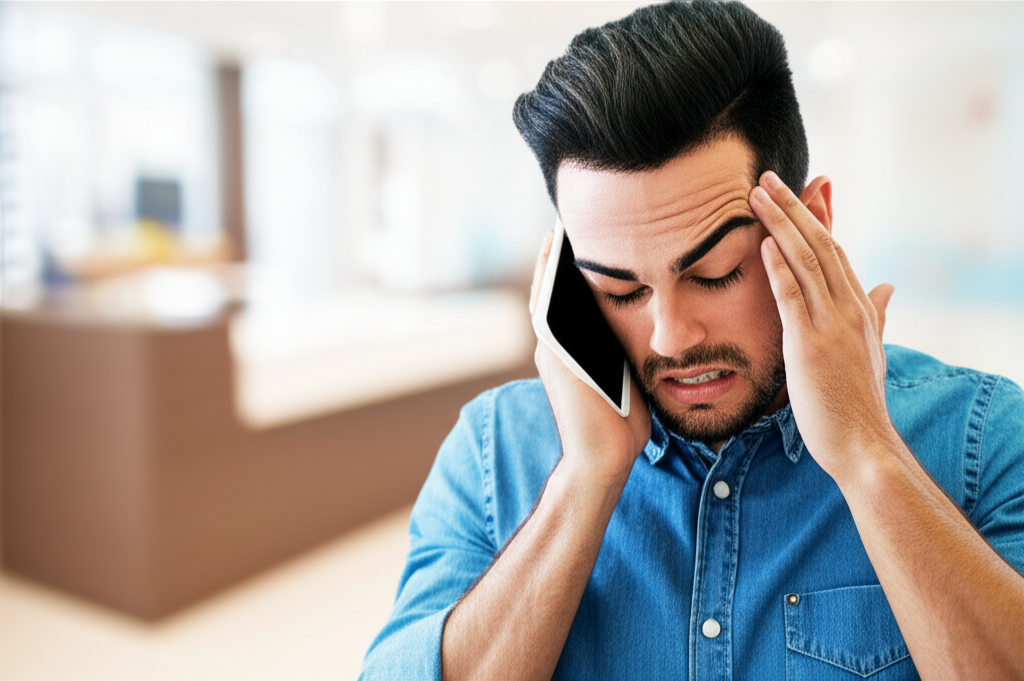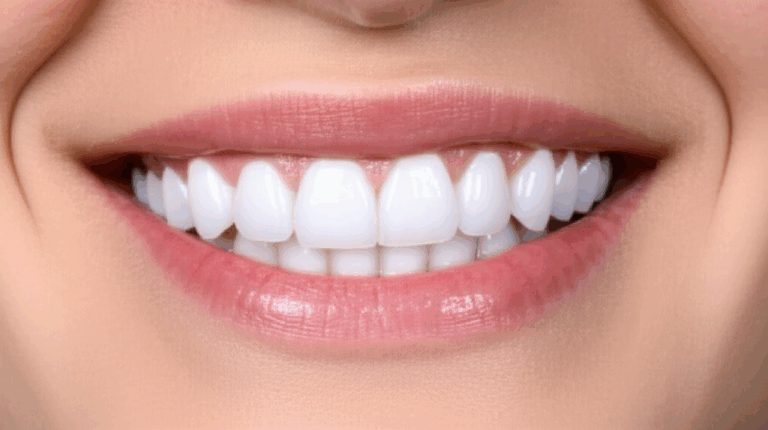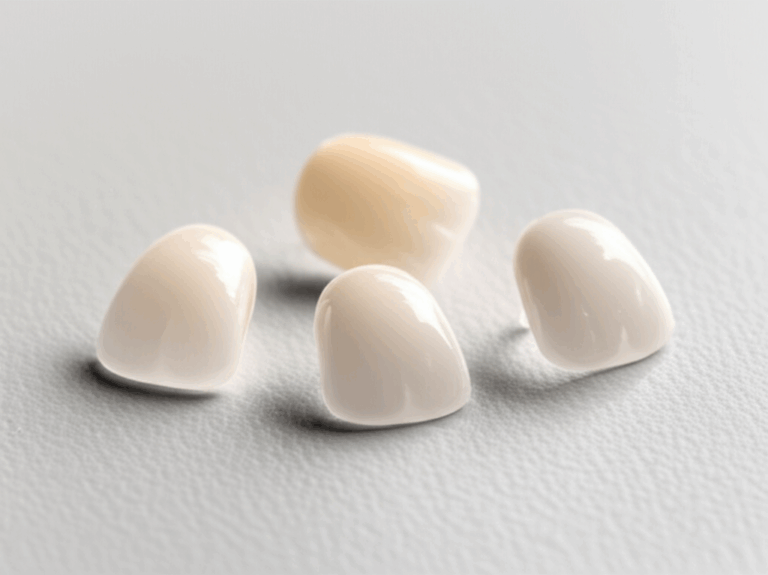
How to Contact an Emergency Dentist: Your Urgent Guide to Immediate Dental Care
Accidents and pain can strike at any time. Sometimes, a tooth breaks while you’re eating dinner. Other times, pain in your mouth keeps you awake all night. It’s scary when you need help right now and you don’t know what to do next. This article will show you exactly how to contact an emergency dentist, what steps you should take, and how you can get quick relief. Don’t wait and let a small problem become a big, expensive one—read on so you know exactly what to do in a dental emergency.
Table of Contents
What Is a Dental Emergency?
Most of us don’t think about our teeth until something goes wrong. But when you’re dealing with a dental emergency, it’s hard to think about anything else!
A dental emergency is any situation with your teeth, gums, or jaw that needs fast help to stop pain, save a tooth, or stop infection. Some usual emergencies are:
- A really bad toothache that won’t stop
- Knocked-out tooth from falling or hurting yourself
- Broken or chipped tooth that hurts or bleeds
- Swollen jaw, gums, or face
- Lost filling or cap
- Bleeding that won’t stop
- Bad injury to your mouth or jaw
Why get help right away? Just like a small leak can flood your house if you ignore it, a small tooth problem can turn into something big and dangerous. Quick help can save your tooth, stop the hurting, and even keep you from getting a bad infection that could make you go to the hospital.
Is My Problem Really an Emergency?
Not every sore tooth is crazy urgent, but many are. Here’s a fast guide to help you figure out if you need help now:
| Emergency Situation | Signs You Need Immediate Help |
|---|---|
| Really bad toothache | Pain that doesn’t stop, keeps you awake, throbbing |
| Knocked-out tooth | Whole tooth is out; root is showing |
| Broken tooth/jaw | Hurts, bleeds, hard to eat or talk |
| Lost cap or filling | Bare, sensitive tooth; hurts to eat or drink |
| Swelling or infection | Swollen cheek or jaw, bad taste, fever, pus |
| Bleeding that won’t stop | After getting hurt or dental work |
| Injury to mouth/face | Cut tongue, gums, or lips; can’t close or open jaw; bad pain |
If this sounds like you, don’t wait. Call an emergency dentist now.
What Should I Do First?
You might feel scared or panicked when a dental emergency happens. Here’s a simple action plan to follow right away:
For Knocked-Out Tooth:
- Hold it by the top part (crown). Don’t touch the root!
- Gently rinse with cool water—don’t scrub.
- Try to put it back in the socket. If you can’t, put it in a glass of milk or your spit.
- Get to a dentist within 30 to 60 minutes for the best chance to save it.
For Really Bad Toothache:
- Rinse your mouth with warm salty water.
- Put a cold pack on your cheek (not inside your mouth).
- Take painkillers you can buy at the store (don’t put aspirin on your gums).
- Call a dentist if it keeps hurting after a few hours.
For Broken Tooth:
- Rinse your mouth with warm water.
- Cover sharp edges with dental wax or sugar-free gum to save your mouth.
- Save any broken pieces if you can.
For Lost Cap or Filling:
- Keep the cap or filling.
- Cover the open spot with dental stuff from the pharmacy or sugar-free gum.
- Call for a soon appointment.
For Bleeding:
- Press down hard with a clean cloth or gauze.
- If it soaks through, add more cloth and keep pressure.
Don’t wait. These steps protect your teeth until you can get to the dentist.
How Can I Find an Emergency Dentist Fast?
This is the step that’s tricky for lots of people. Tooth pain is bad enough—you don’t want to be stuck hunting for help. Here’s how to move fast:
1. Call Your Regular Dentist
Even after hours, their office may have a message with an emergency number or another dentist on call. Always try this first! Most offices have a plan for emergencies.
2. Try Online Searches
Get your phone or laptop and search for:
- “emergency dentist near me”
- “24-hour dentist”
- “dentist open now”
Check for places that are open now and look for reviews to see if people talk about emergencies.
3. Online Directories or Apps
Websites like Zocdoc, Healthgrades, or Google Maps can help. Some apps list dentists that take walk-ins or same-day visits.
4. Urgent Care or Clinics
Some urgent care spots or hospitals have dental services, especially for big injuries or if you can’t find a dentist open.
5. Dental Schools
Colleges with dental training often have emergency clinics that cost less.
Tip: If your regular dentist can’t see you, you can use online directories to find dental places—some digital tools used by digital dental lab partners work well.
Remember: If you are bleeding a lot, can’t breathe, or swelling makes it hard to swallow, go to the emergency room right away.
What Information Will the Dentist Need?
Don’t let panic make you forget important stuff. Here’s what you should have handy when reaching out:
- Say what’s wrong: What happened, where does it hurt, how long has it been, is there swelling or blood?
- Your health info: Allergies, medicine, other health problems
- Insurance info: Company, policy number, or if you have none
- Where you are: Address or location (for directions or if they need to help you fast)
- Other details: What you tried already (like ice packs or rinses)
A quick call with this info saves time and helps the dental team get ready for you. It’s like packing your backpack before school—it makes everything go smoother!
What Happens During an Emergency Dental Visit?
Walking into a dentist’s office when you already hurt can be scary. Here’s what usually happens so you’re not worried:
1. Checkup and Questions
The team asks about your symptoms, might take an X-ray, and talks about what happened. This is called triage—they figure out what needs fixed first.
2. Pain Relief
You could get numbing medicine for your tooth or gums. Sometimes, you’ll get painkillers.
3. Right Now Treatment
The dentist will do what’s really needed—like put in a knocked-out tooth, drain an infection, fix a broken tooth, or give you medicine if you have an infection. Some fixes are just to help you feel better until you can come back for a real fix.
4. What’s Next
Before you leave, your dentist will talk about what you need to do at home and what else needs fixing.
5. Talk About Price
Expect a simple talk about price and payment. Many clinics know emergencies are sudden, so they try to help with payment plans if needed.
Main goal? Get you out of pain and keep you as healthy as possible.
How Much Does Emergency Dental Care Cost?
Money worries shouldn’t stop you from getting help, but knowing what to expect helps.
| Emergency Service | Cost at Dentist Office | Cost at ER | Covered by Insurance? |
|---|---|---|---|
| Basic check/X-ray | $100-200 | $750+ | Usually, but check your plan |
| Temporary filling or cap | $150-300 | Not usually there | Often covered |
| Pulling a tooth | $200-600 | ER gives pain pills | Usually partly covered |
| Antibiotics or pain meds | $25-100 | $100+ | Sometimes |
| Root canal or surgery | $500-2000+ | Not done in ER | Sometimes, check your plan |
Tip: Going to a dentist for emergencies is almost always cheaper and easier than the ER, unless it’s life-threatening (major bleeding, can’t breathe).
If you have insurance, most plans help pay for emergency visits (checking, stopping pain, some X-rays, small repairs), but check just in case. If you don’t have insurance, talk to the dentist about payment plans or look for a student dental clinic or someone with posted lower prices.
Can I Prevent Dental Emergencies?
You can’t stop every accident, but you can lower your chances of a surprise tooth problem:
- Brush and floss every day—keeps teeth strong and healthy.
- See your dentist for checkups and cleanings.
- Wear a mouthguard if you play sports or grind your teeth at night. Places like night guard dental lab make special guards for you.
- Don’t chew ice, popcorn seeds, or use your teeth to open things.
- Eat less sugar—it helps keep away cavities!
Take care of your teeth each day and emergencies are less likely. But life’s full of surprises, so be ready to act if something does go wrong!
Why Acting Quickly Matters
Let’s be honest. When you get a surprise toothache or lose a tooth, it feels like time stops. But really, every minute means something.
If you move fast:
- You might save your tooth (if it’s knocked out)
- Infections can’t get worse or spread
- You won’t face bigger, more costly problems later
- You can eat, talk, and smile without pain
Ignoring tooth pain can turn a tiny fix into a big problem—just like a little leak can flood your house if left alone. Your health matters. Don’t wait.
Important Things to Remember
Let’s sum it up, so you’re ready if a tooth problem happens:
- Move quick when you see a dental emergency—time can save your tooth!
- Know emergency signs: bad pain, lost tooth, lots of blood, swelling, or jaw injury.
- Try first aid at home: rinse, cover, cool the spot—but don’t wait to get real help.
- Find an emergency dentist: call your dentist, search online, or try clinics and schools.
- Bring your details when you call—what hurts, health info, insurance, what happened.
- Get ready for your visit: know what might happen, what you might pay.
- Keep problems away by caring for your teeth, using mouth guards, and not using teeth like tools.
If you’re not sure if it’s urgent, always ask a dentist. It’s better to check and find it’s small than ignore it and have it get bad.
Frequently Asked Questions
Q: Can I fix my toothache at home?
A: You can try salt water, over-the-counter pain meds, and ice packs, but if it hurts a lot or lasts longer than a day, go to a dentist.
Q: What if my tooth gets knocked out?
A: Pick it up by the crown (top), rinse gently, put it back if you can, and hurry to a dentist in under an hour.
Q: Where can I find a dentist at night or on weekends?
A: Search for “emergency dentist near me” or look for walk-in dental clinics or dental schools with weekend hours.
Q: Is an emergency dentist more expensive than regular care?
A: Yes, it’s usually more than normal checkups, but quick care saves money compared to waiting and needing surgery or a hospital visit.
Q: Can I go to the hospital for tooth pain?
A: For really bad emergencies (big injury, can’t breathe, lots of bleeding), yes. But the ER won’t fix teeth—they usually give pain pills and tell you to see a dentist.
Keep this guide for when life throws a dental surprise your way. It’s always better to call for help and find out it’s minor than to ignore pain and need much bigger care.
If you want to know about top dental products and how the china dental lab team helps, check out more stories and ways modern dentists keep your smile safe—even in tough situations.
Key Points to Remember
- Don’t ignore tooth pain or injuries—get help fast.
- Have your info ready: symptoms, allergies, insurance.
- Use online searches and your dentist’s emergency number.
- Taking care of your teeth and acting quick keeps smiles bright.
- Fast action keeps you safe, healthy, and happy.
Handle dental emergencies the smart way so you can keep smiling bright!








